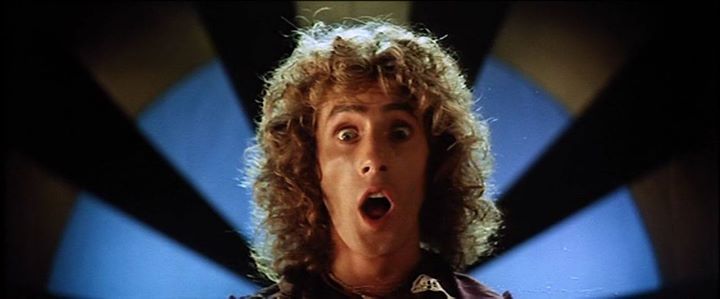
Dir.: Ken Russell; Cast: Roger Daltrey, Sara Kestelman, Paul Nicholas, Ringo Starr, Fiona Lewis, Veronica Quilligan; UK 1975, 103 min.
Ken Russell was really impressed with Roger Daltrey: so much so he cast him in two features released in 1975: Tommy and Lisztomania, an expression invented by German opera impresario Heinrich Heiner to describe the craze for Liszt that developed at the Bolshoi in the 1840s – akin to Beatlemania (Ringo Star is ironically cast here as The Pope). Accused of being too crass and self-indulgent for the first, Russell easily surpassed all limits of taste and showmanship in his biopic of the Hungarian composer Franz Liszt, successfully taking the cinema back to where it first began: as a sensational fairground attraction for the masses.
We meet Liszt (Daltrey) in bed with Countess d’Agoult (Lewis). The Count discovers them ‘in flagrante’ and nails them into the body of a piano, placing it on the railway track. This serves as a start of flashbacks in which Liszt meets Richard Wagner (Nicholas), putting him off with his flashy piano interpretation of the German’s opera Rienzi, whilst courting rich women in the audience. One of them, Princess Carolyn (Kestelman) gives Liszt her address in Russia. Two of Liszt’s children are killed, and he is left with Cosima (Quilligan). He tells her he would do everything, even enter a pact with the Devil, to compose brilliant music again. Following the Princess to Russia, she promises he will compose the music he longs for if she is put in charge of his life. Hallucinating, Liszt sees the women of the Princess’ household assaulting him, before they become seduced by his music – and his ten feet penis.
In Dresden, Germany, Wagner becomes embroiled in the May Uprising. Wagner is injured in the fighting, and when Liszt is tending to his wounds, Wagner drugs Liszt, who passes out. Wagner turns into a vampire, sucking Liszt’s blood. Later Liszt and Carolyn travel to Rome to persuade the the Pope (Starr) to allow Carolyn to divorce. The marriage is annulled at final stage by Carolyn’s husband. Liszt enters a cloister, but is soon found in bed with a woman. Meanwhile Wagner has seduced Cosima, while evil Jews are seen raping blond Aryan girls. Cosima and Wagner wear Superman outfits, promising to kill all Jews to cement the advent of the super race. Wagner later confesses he has built a mechanical Viking Siegfried. But Liszt plays his music, and Wagner is nearly exorcised, when Cosima kills Liszt. Finally, Liszt is re-united with the women he loved and Cosima (sic), singing, that he has finally found peace.
Together with Mahler and Tchaikovsky’s The Music Lovers, Lisztomania is the third outlandishly baroque composer biopic Russell directed in stark contrast to the sober, factual and deeply affecting black-and-white BBC portraits of Elgar, Debussy and Delius he made accompanied by Huw Weldon’s sonorous narrations, before been taken over by his own hyperbole. Legendary DoP Peter Suschitzky, who would also photograph Russell’s next feature Valentino, tries his best to keep up a carnival atmosphere. The spectacular moments – and the in-voluntary Chaplin imitations, produce a distorted mix of an orchestrated party. It would be wrong to talk about Lisztomania in terms of having aged badly – it was never more than a miserable, self-indulgent trip by a director, who had fallen victim to his own folly de grandeur. AS
AVAILABLE ON BLURAY and PRIME VIDEO and BFIPLAYER